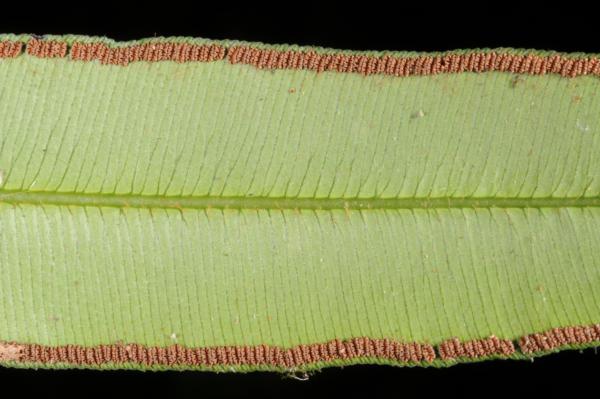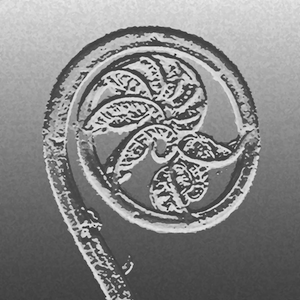
Angiopteris evecta (G.Forst.) Hoffm.
Family
Marattiaceae
Nomenclature
Angiopteris evecta (G.Forst.) Hoffm., Comm. Soc. Reg. Gott. 12: 29, t. 5. 1796; Bedd., Handb. Ferns Brit. India: 460, f. 285. 1883; Christ, Bot. Tidsskr. 24: 112. 1901; C.Chr., Bot. Tidsskr. 32: 425. 1916; Holttum, Rev. Fl. Malaya ed. 1, 2: 44, f. 3. 1955 [‘1954’]; Holttum, Dansk Bot. Ark. 20: 15. 1961; Holttum, Dansk Bot. Ark 23: 228. 1965; Tagawa & K.Iwats., Fl. Thailand 3: 41. 1979; Boonkerd & Pollawatn, Pterid. Thailand: 22, 64. 2000; Newman et al., Checkl. Vasc. Pl. Lao PDR: 28. 2007. – Polypodium evectum G.Forst., Fl. Ins. Austr. Prod.: 81. 1786.
Angiopteris crassipes Wall. ex C.Presl, Suppl. Tent Pterid.: 23. 1845; E.Smith, J. Siam Soc. Nat. Hist. Suppl. 8: 9. 1929; Tardieu & C.Chr., Fl. Indo-Chine 7(2): 20. 1939; Dy Phon, Dictionary of Plants used in Cambodia: 37. 2000.
Angiopteris helferiana C.Presl, Suppl. Tent. Pterid.: 22. 1845; C.Chr., Contr. U.S. Natl. Herb. 26: 329. 1931.
Angiopteris mekongensis Ching ex C.Chr. & Tardieu, Notul. Syst. (Paris) 5: 8, t. 2(3-4). 1935; Tardieu & C.Chr., Fl. Indo-Chine 7(2): 24. 1941.
Angiopteris polytheca C.Chr. & Tardieu, Notul. Syst. (Paris) 5: 10, t. 2( 5-6). 1935; Tardieu & C.Chr., Fl. Indo-Chine 7(2): 24. 1941.
Angiopteris confertinervia Ching ex C.Chr. & Tardieu, Notul. Syst. (Paris) 5: 11, t. 2(9-10). 1935; Tardieu & C.Chr., Fl. Indo-Chine 7(2): 26. 1941.
Angiopteris sp.: C.Chr., Contr. U.S. Natl. Herb. 26: 329. 1931; Tagawa & K.Iwats., SouthE. Asian Stud. 3(3): 72. 1965; Tagawa & K.Iwats., SouthE. Asian Stud. 5: 33. 1967.
Description
Terrestrial. Rhizome short, massive, bearing several large fronds in a tuft. Stipes fleshy, green, swollen at base, with scattered whitish streaks at both sides, 100–150 cm long. Laminae bipinnate, 200–300 cm long, to 200 cm broad; pinnae and pinnules swollen at base, pinnae to 100 cm long; pinnules commonly to 20 by 2.5 cm; veins all free; sori with two close rows of sporangia; sporangia dehiscing along slits on the side facing the veins.
Distribution in Thailand
This is common throughout Thailand usually in shade.
Distribution in Laos
Khammouane, Luang Phrabang, Sayabouli.
Distribution in Cambodia
Kampot, Koh Kong, Ratanakiri.
Wider Distribution
From India and China through Southeast Asia and Malesia to the islands of the Pacific.
Ecology
Terrestrial in wide variety of forest types, usually in shade.
Proposed IUCN Conservation Assessment
Least Concern (LC). This species is common and widespread.
Notes
Several segregate species have been recognised in Indo-China. These have all been placed in synonymy here but considerably more taxonomic work is necessary in this group. The rhizome is used in local medicine. In Cambodia the young leaves are eaten raw (Dy Phon, 2000).
Voucher specimens - Laos
Delacour s.n., Khammouane, Nape (P); Vidal 4536, Sayabouli, Ban Pha Hok (P).
Voucher specimens - Cambodia
Martin 292, Koh Kong, Cardamon Mts (P); Viboth R6-18, Koh Kong, Thma Baing (P); Thomas et al., Ratanakiri, Virachay (E, P).
Stipe bases
Frond
Pinnules
Branching within frond
Immature sori
Mature sori
Site hosted by the Royal Botanic Garden Edinburgh. Content managed by Stuart Lindsay, Gardens by the Bay, Singapore and David Middleton, Singapore Botanic Gardens. Last updated 24 January 2012
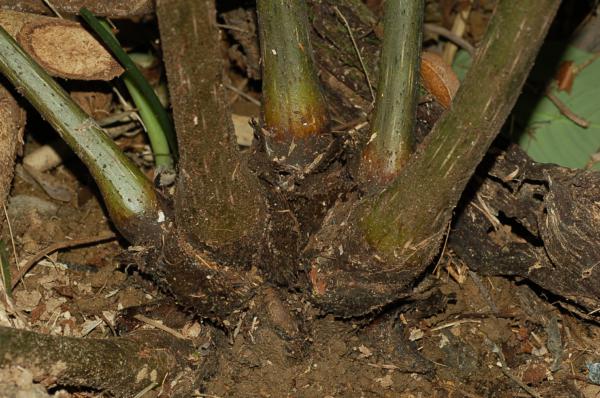
_TP_5261_sml.JPG)
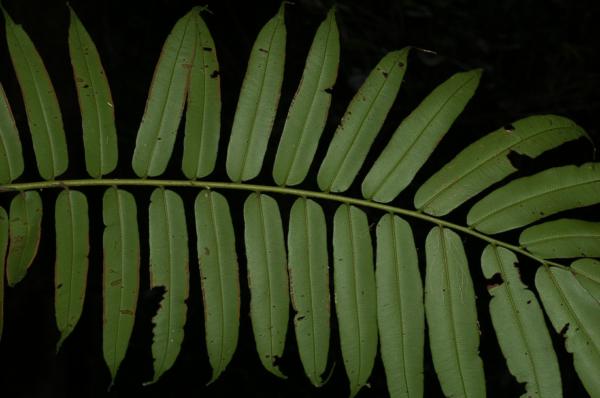
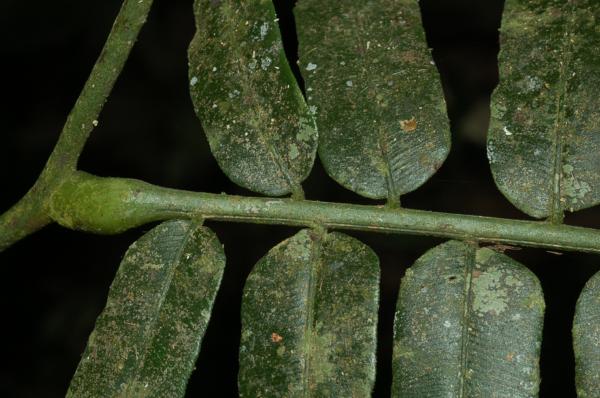
_TP_3484_sml.JPG)
